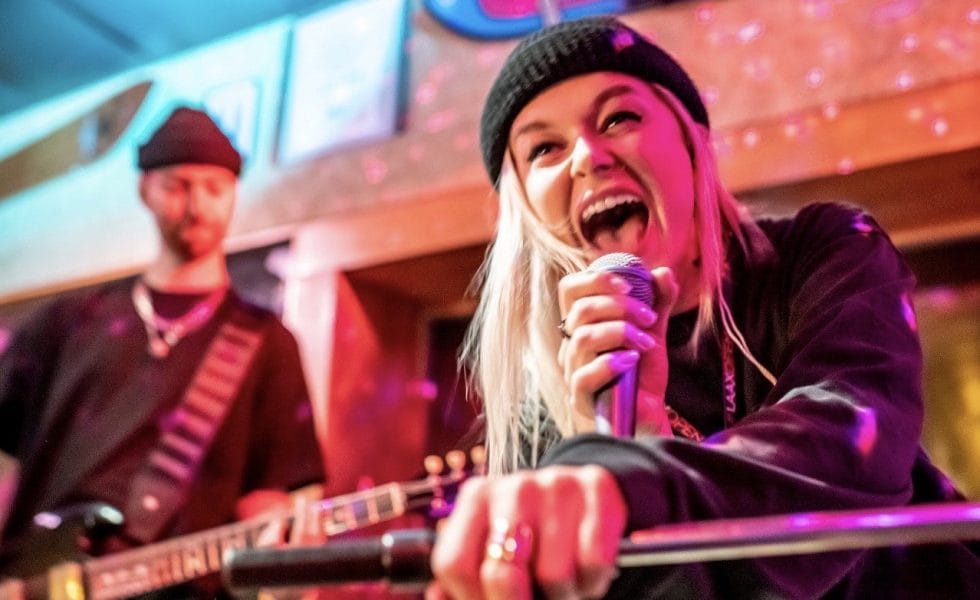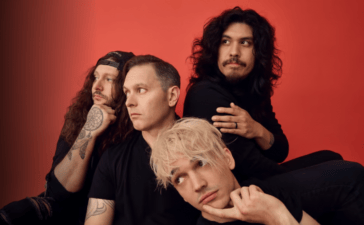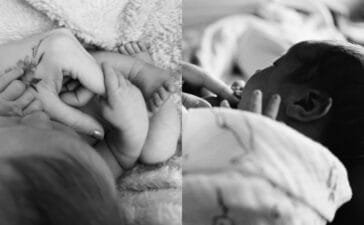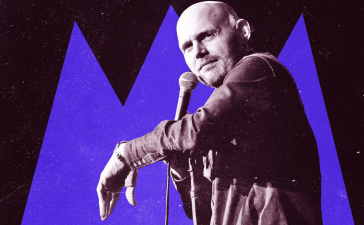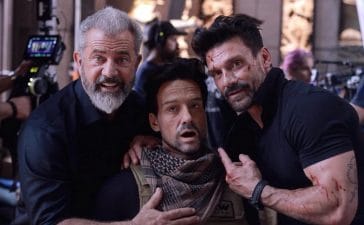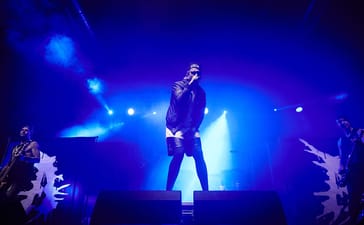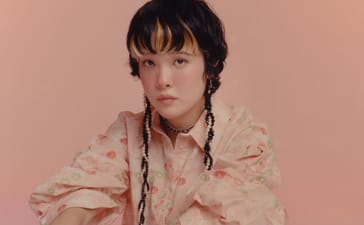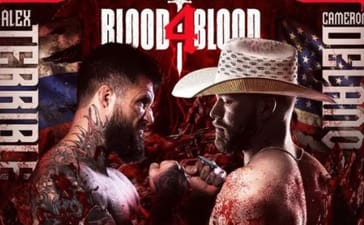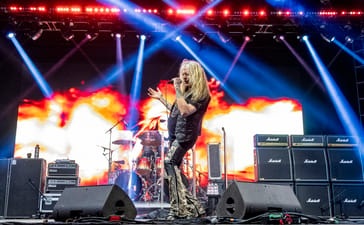Motivational speaker, model, teacher of four languages and 3 2 1 Run vocalist Alyona Alekhina has a resume that’s tough to summarise into an intro paragraph. Suffice to say, that’s quite uncommon for the front person of a band two singles into their career.
In 2013, Alekhina suffered a spinal cord injury, leaving her unable to move from the waist down. But it’s not that event worth talking about. It’s the professional snowboarding career that precedes it, and the inspiration that came after.
Indeed, Alekhina is quite unique when it comes to punk rock musicians. When organising the interview, she made sure it would happen at a hospitable time in Sydney – that never happens.
As a result, Alekhina would be receiving the call at 2am local Moscow time.
It would turn out working through the night was part of her M.O. “I’ve been like that my whole life. I’m a night owl for sure. I think I’m doing great if I get to bed by 4am.”
It’s not uncommon for musicians to be up at ungodly hours, but it’s uncommon that they’re this productive. Since a young age, Alekhina was prone to burning the midnight oil in pursuit of her creative conquests. “I have a few theories,” she says of her inclination. “It’s dark outside and it’s cosy, it’s silent,” but ultimately: “Night time makes normal things magical.”
“Everything seems more special to me at night, I think. I’m very self-demanding. I never allow myself to be lazy. I need to be productive and that’s what makes me happy. Night time is the only time when I take the pressure off of me because it creates this illusion, the whole world slows down. It allows me to get off of myself at least a little bit.”
It doesn’t hurt that punk rock is the language of the night.
Champion snowboarder and model don’t sound like careers with much connective tissue to the punk world. Be that as it may, thanks to the twist and turns of life, it was punk rock that brought these opportunities into Alekhina’s orbit.
Deciding to move on from his days of punk rock music, Alekhina’s older brother gifted his then-12 year old sister with a stash of CDs. Amongst them were NOFX, Rancid and Goldfinger’s Open Your Eyes – quite prophetic. “I fell in love with that album,” she adds.
“Skateboarding culture was very connected to punk rock, so I started skateboarding when I was twelve or thirteen. I came from a very poor family; I couldn’t afford a snowboard, but it was love from first sight…” Alekhina would save the money for her first snowboard through her first job, braiding dreadlocks.
“When I finally could save up for my first board, I shared my idea [to begin snowboarding] with my parents. They said ‘We think you want to do it for fashion’. They didn’t want me to be just trendy.”
Ever respectful of her parents, Alekhina remained undeterred: “I was fixed on snowboarding.”
The fixation would grow into a thriving career as a professional snowboarder. Alekhina was crowned national Russian snowboarding champion seven times and twice European champion. In 2013, she qualified for the 2014 Winter Olympics.
On the slopes throughout Russia and Europe in real time, as well as in her professional videos, Alekhina would routinely tap into the raw energy of punk rock to get her job done.
“I couldn’t ride without music. As soon as the battery in my iPod was done, I would just call it a day. It was like this music wanted me to move. It’s like dancing but I never really danced, you know, ’cause I always liked punk rock?”
Even her career as a model for Roxy can be traced back to her beloved genre, “if we dig deep enough…”
“Punk rock caused skateboarding, skateboarding caused snowboarding and snowboarding caused modelling. I got my first sponsorship in 2007 by Roxy which was every girl’s dream. And it still is! Modelling was the last thing I imagine myself doing.”
Now thriving on a diet of Anti-Flag, Rise Against, NOFX and more, Alekhina sought further raw energy from life; rushes. “Yeah, before I started snowboarding I already had that; adrenaline.” After teaming up with a crew that was essentially the Russian version of Jackass, Alekhina road atop railway carts and skydived while chasing her rush “to express the energy that punk rock gave me.”
“I think snowboarding came at the right time,” Alekhina says, providing her with a focal point for all the pent up energy. But it’s also a sport that comes with immense risk.
During a photoshoot in 2013, Alekhina would fall while on the slopes of California, suffering severe internal injuries and a broken spinal cord that left her effectively paralysed from the waist down. In the years after, rehab would be extensive.
“I’ve been through hell, for sure…I really wanted to die. For a couple months I just did not want to exist.”
“I didn’t go to zero,” she says of all the undone progress to her hard-fought career, ‘I went to negative.”
“I knew one thing though, I would never do it [‘it’ meaning suicide, to which she is vehemently against] because of my family. My family are the best people and they sure don’t deserve anything that has happened to me.”
The frustration of an award-winning champion career, over well before its time, shattered Alekhina.
“I had been working my whole life, climbing. It hasn’t been easy. My parents were against me snowboarding not just not helping. It was a very tough path for me. I had no connections, no money…”
“Then I’m a handicapped person. Miserable. That was very tough for me. And things in my personal life kept getting worse too for a while.” Through her tenacious spirit, Alekhina kept her resolve. “Every second of it, no matter how tough it got, I knew that I had no choice. I would never commit suicide but I felt like I wanted to, at least for the first two or three months.”
Yet again, Alekhina’s favourite music would work its life affirming magic, as well as family, and her best friend, in the form of a list of things to be grateful for that Alekhina penned in hospital. “Sometimes I had to go to the bottom of the list and then start again from the top until I felt a little better.” It worked.
Upon leaving hospital, Alekhina found herself writing songs as an outlet for her struggle. “I think it was like three and a half years after my injury. I was just showering but bawling my eyes out, thinking my neighbours could hear me crying…I came out of the shower with a song in my mind…”
“It was like basically tears written down,” she says of her first original song. “I had a couple more songs like that. But then when I started feeling better, I was so done with being sad.”
Armed with both distance and perspective from the accident, and an unshakeable resilience, Alekhina would try her hand at more positive material; songs that wouldn’t just make her happy, but others as well.
“I read – I don’t know what it was, like a book, or in a a series of interviews. Something like that; but it was memoirs of people who had tried to commit suicide, in a lot of stories, there was sad music involved. I remember it shocked me so much that I thought: ‘Oh man. I don’t want to be a part of that.'”
“Ever since I felt a little better, I’ve been trying to write something uplifting.”
That brings us to the band’s single, ‘Waves’, a lean slice of pick-scraped punk rock and an ode informed specifically by a passion for surfing, and what “a love, hate relationship it is.” More broadly, it speaks to the unavoidable ebb and flow of life, and our attitude towards it.
“What eventually defines our life is how we manage it. What we do with these circumstances and what we do with this wave that life brings us, right?”
Previous single ‘Bambi’ might not necessarily be a happy song, but it’s out to do good nonetheless, seeing 3 2 1 Run take an anti-gun, anti-hunting stance. “I’m aware there is a hippie in me,” she says, being a vegan herself. Pointing to ‘1 Trillion Dollar$’ by Anti-Flag and Rise Against’s ‘Hero of War’ as proof, Alekhina is a firm believer that punk rock can lead to actual change.
“I’ve covered ‘Hero of War’ a lot – I personally saw how much of an impact this song can have. That’s why I love punk rock. I think it is powerful. Intellectual punk rock.”
As for what stories we can expect from Alekhina and 3 2 1 Run next, an upcoming single ‘Storms’ will take influence from the iconic film Shawshank Redemption, or more specifically, its shining beacon of resilience Andy Dufresne and the famed ‘Get busy living…’ scene. “I owe so much to this movie ’cause it kind of saved me,” she says, “I watched it for the first time when I needed it the most.”
“I could just relate to this guy so much, how he got all the stuff he did not deserve but he was just taking it with a straight face; nobody could take his dignity away from him.”
“That inspired me to write ‘Storms’…and it was at night!”
After that, the band plan on furthering their message against gun violence in North America, where Alekhina spends much of her time. “I lost a friend to gun violence. He was a victim of a mass shooter in downtown LA. When I lost my friend, I wrote another anti-gun song.”
“My attitude, if anything, is that I want these songs to change lives.” Considering just how much punk rock has changed, shaped and saved hers, Alekhina’s working from experience.


